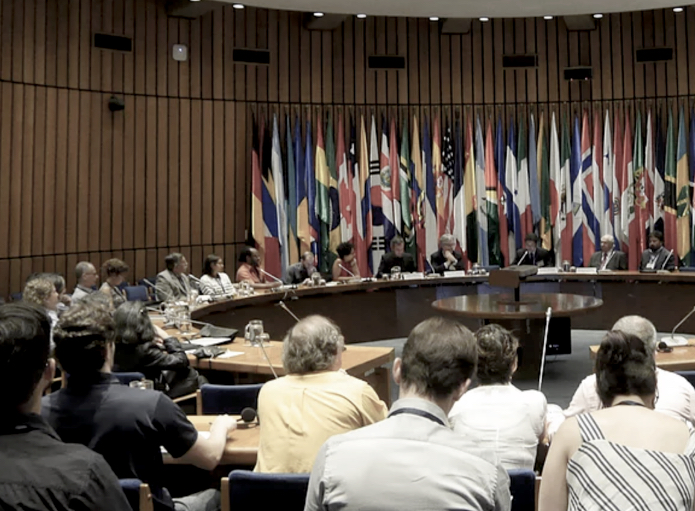ALAHPE members must present and conduct their research with integrity and honesty, respecting legal and ethical requirements and acknowledging the contributions of others.
In all ALAHPE spaces (both digital and in-person), speech, discourse and texts must be conducted with respect. People should be respectfully treated regardless of their position, age, gender, race, ethnicity, national origin, economic and social background, sexual orientation, disability and any other personal characteristic. All kinds of bullying or harassment are prohibited and strongly repudiated.
ALAHPE aims to construct a diverse, fruitful and respectful environment, where equal opportunity and fair treatment apply to all. Therefore, all its members must actively engage in including all, especially those belonging to groups sub-represented in the society. This translates as providing them with time to speak (in presentations, questions and comments) in an welcoming and respectful ambience.
ALAHPE seeks to pay special attention to promote gender and race equality within its events, giving preference to sub-represented groups in case of a limited number of attendees and developing other strategies to encourage their participation. Equality should also be met in different positions, such as members of the organizing and scientific committees, panelists and speakers.
Any breach of the code of conduct should be reported to any of the members of the executive committee, anonymously or not.
ADDITIONAL SUGGESTIONS FOR SESSION CHAIRS AND MODERATORS
1. Diversity and gender parity should be observed when opening the floor for comments and questions. For instance, if two men raise their hand first, even if a woman makes it afterwards, it should be given her preference after the first man has spoken. The same should apply to differences of race and age.
2. Please take into consideration the amount of time allowed for comments and questions, and those willing to speak. You are responsible for preventing someone from taking up all the speaking time and not allowing others to express themselves.
3. Possible suggestions: to ask if young scholars want to speak first, before giving space for older scholars.















